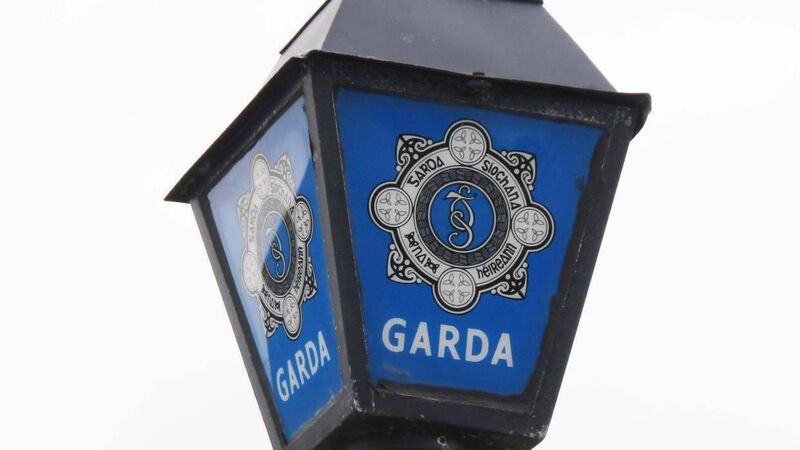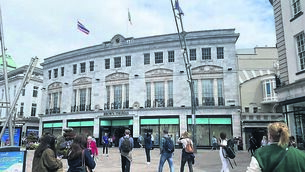Ireland 2023: Some uneasy exchanges and conversations

We have a crime crisis, a policing crisis, a housing crisis, and a health crisis, says Áilín Qunlan, while money is being poured into generous welfare payments.
“It’s the same everywhere” she said. “Restaurants, bars, the retail sector. People don’t want to work. “The ones with qualifications want careers. The unskilled stay on social welfare.”
Another uneasy exchange followed.
“Our government has thrown open our borders to thousands of refugees and asylum-seekers from radically different cultures across the globe; from places where policing is highly visible and even brutal, and where the police response to anti-social or criminal behaviour is immediate and extremely punitive.
“These people arrive in Ireland, where there’s no visible policing, and where a bureaucratic system apparently prevents gardaí from immediately attending incidents of anti-social behaviour, crime or traffic accidents, for example, unless they get approval from a control unit.”
Somebody else said a Garda relative had recently left the force because he got a promotion and found it meant he was stuck in an office all day doing mountains of paperwork. He never met either the police officers working under him or any members of the community he was supposed to serve.
He’d told his relatives frontline gardaí couldn’t put a hand on anyone causing trouble without being called racist, or being told they were going to be investigated by GSOC. This wasn’t why he’d joined the Garda Siochana, he said, so he left.
Someone wondered if we’d heard about the elderly residents in a town up the country, who were afraid to come out of their homes at school bus collection and drop-off times, because of the misbehaviour of local second-level students. Where were the guards, she wanted to know. I said I’d been reliably told that elderly people living in a town in County Cork remain indoors at school lunch-break, because that’s when second-level students are allowed to come rampaging down main street in big rough groups.
Meanwhile, though there’s no doubt that many of the refugees and asylum-seekers entering Ireland are sincere, decent, hard-working and law-abiding people, it is statistically inevitable that they can’t all be.
It is inevitable that some people are flocking here to exploit an over-generous welfare system which provides them with some €900 a month – (Germany and France, for example offer around €500-€600 a month), housing, a free health service, a free education system for their children, and the opportunity to misbehave under a poorly-resourced and demoralised policing service.
They see the disrespect with which teachers, nurses and gardaí are treated by the public. They watch how the Irish government complacently presides over a policing crisis, a crime crisis, a road deaths crisis, a housing crisis, a massive health crisis, an environmental and biodiversity crisis...
They see how - quite incomprehensibly in the face of all these problems - much-needed public money is pouring out in welfare payments that are so generous that many people in this country don’t ever feel the need to go out and work.
One Ukrainian refugee who lived in Ireland for six months told a newspaper the welfare benefits provided here are very generous compared to other countries – too generous, she felt. Statistics show that Ireland, which offers €900 or more a month, is one of the few countries where the number of people seeking refuge from the war in Ukraine, has increased month on month - despite the fact Ireland is geographically much further away than other EU States.
According to EU Statista data, in percentage terms, Ukrainian refugees - we now have around 96,000 or so here - currently account for just below 2% of our relatively small population. That’s a big number compared to France (there, a single asylum-seeker qualifies for about €528 a month in benefits) where Ukrainian refugees make up 0.11% of the population.
The question many people are asking: Now that we have welcomed so very many asylum-seekers into this small island nation of ours, isn’t it time to turn our attention and our resources to resolving our ballooning social problems, rather than continuing to allow in massive numbers of needy people our services can’t cope with?
Another issue in all of this: I got an email from a man who believes Ireland’s generous welfare benefits system is putting the business sector at a significant disadvantage - employers can’t find unskilled labour.
In his email, which he forwarded to the Minister for Social Protection, Heather Humphreys, the man gave the example of a retail position offering remuneration of €11.68 an hour. An unskilled person on welfare with a partner and two children would get roughly the same per hour without even needing to get out of bed, he complained. Someone with four children was entitled to even more, on top of a medical card and, of course, no work-related expenses or child-care costs.
“Does the retail sector pay employees extra for every additional child they have?” he asked rhetorically. “Do employers give employees an extra week’s wages at Christmas?”
He believes there’s little incentive to work if you’re unskilled. He’s incensed by the recent decision to increase welfare payments on foot of increasing the minimum wage.
His solution: “Rather than increasing the minimum wage, you should max out the welfare payment at 70% of the minimum wage, regardless of how many children a couple have.”
The government lacks the backbone to do the tough, unpopular things needed to get more people out to work, he feels. As a result, he says, those who can successfully avail of Ireland’s generous social welfare system get to have a life, while “middle Ireland is going around frantically trying to make ends meet, living in houses (if they are lucky) that wouldn’t come close to meeting the guidelines for HAPP accommodation”.
Think about it anyway.







 App?
App?




